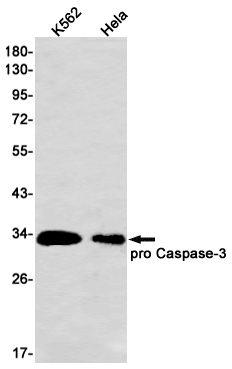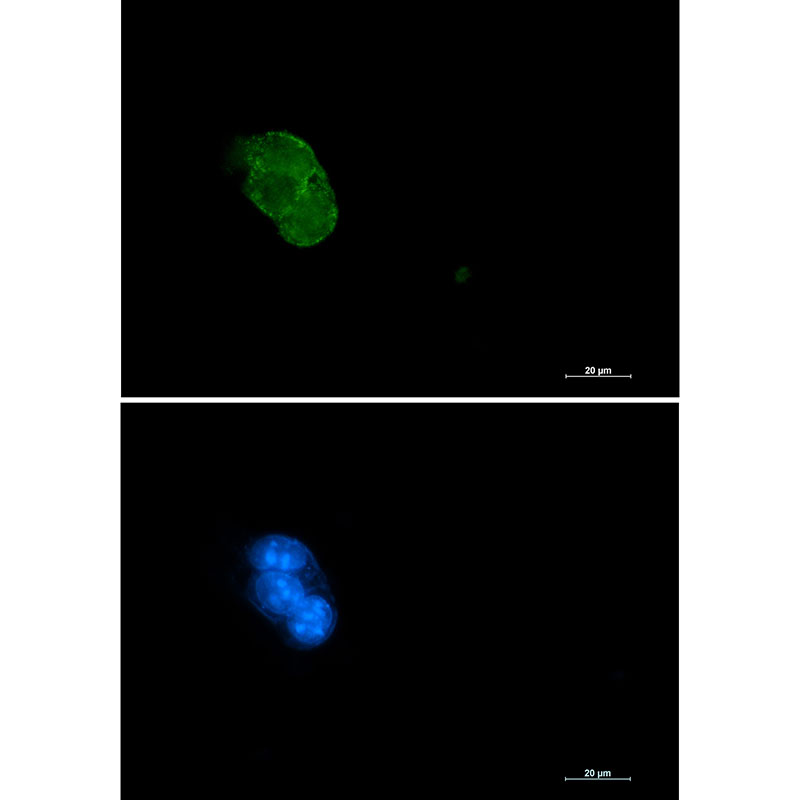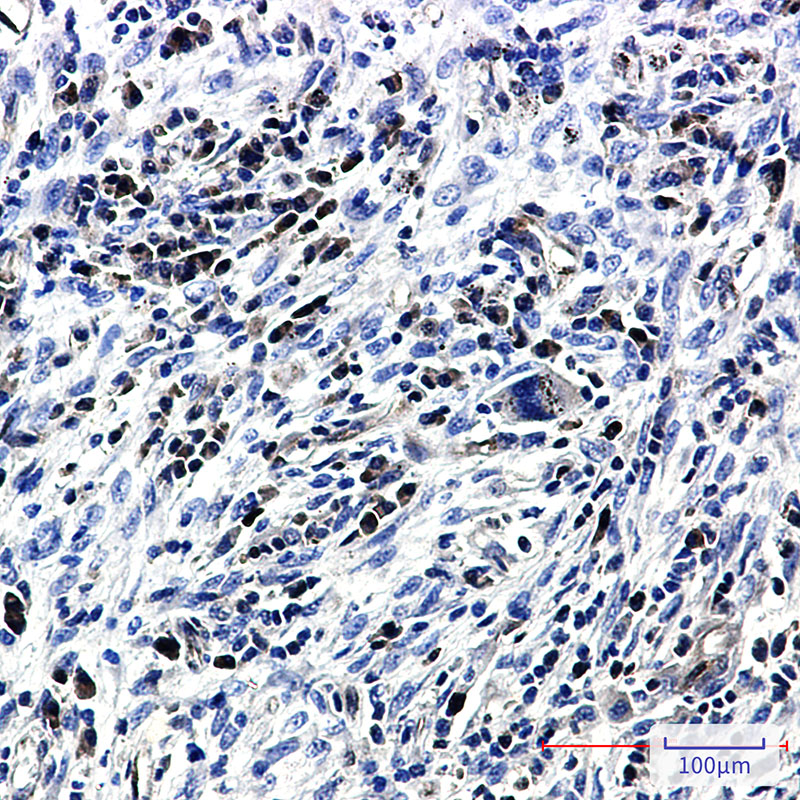


| WB | 咨询技术 | Human,Mouse,Rat |
| IF | 1/20 | Human,Mouse,Rat |
| IHC | 1/50-1/100 | Human,Mouse,Rat |
| ICC | 1/50-1/200 | Human,Mouse,Rat |
| FCM | 咨询技术 | Human,Mouse,Rat |
| Elisa | 咨询技术 | Human,Mouse,Rat |
| Aliases | CASP3; CPP32; Caspase-3; CASP-3; Apopain; Cysteine protease CPP32; CPP-32; Protein Yama; SREBP cleavage activity 1; SCA-1 |
| Entrez GeneID | 836 |
| WB Predicted band size | Calculated MW: 32 kDa; Observed MW: 32 kDa |
| Host/Isotype | Rabbit IgG |
| Antibody Type | Primary antibody |
| Storage | Store at 4°C short term. Aliquot and store at -20°C long term. Avoid freeze/thaw cycles. |
| Species Reactivity | Human |
| Immunogen | A synthetic peptide of human Caspase-3 |
| Formulation | Purified antibody in TBS with 0.05% sodium azide,0.05%BSA and 50% glycerol. |
+ +
以下是3篇与Caspase 3抗体相关的经典文献示例(内容为模拟概括,建议通过PubMed等数据库核实原文):
---
1. **标题**:Identification and characterization of CPP32. a protein resembling human caspase-3
**作者**:Nicholson DW, et al.
**期刊**:*Nature* (1995)
**摘要**:该研究首次报道了CPP32(caspase-3前体)的纯化与特性,开发了特异性识别caspase-3裂解形式的抗体,并证实其在凋亡细胞中的激活作用。
---
2. **标题**:Caspase-3 is the primary activator of apoptotic DNA fragmentation via DNA fragmentation factor (DFF)
**作者**:Porter AG, Jänicke RU
**期刊**:*Cell Death & Differentiation* (1999)
**摘要**:通过免疫印迹(使用Caspase-3抗体)和基因敲除实验,证明caspase-3是触发DNA断裂的关键酶,抗体的特异性验证支持其在信号通路研究中的应用。
---
3. **标题**:Structural basis of caspase-3 inhibition by XIAP
**作者**:Riedl SJ, et al.
**期刊**:*Cell* (2001)
**摘要**:利用针对caspase-3活性位点的抗体进行共结晶分析,揭示了XIAP蛋白抑制caspase-3的分子机制,为凋亡调控提供了结构生物学证据。
---
**提示**:实际文献中,抗体信息多出现在方法学部分(如抗体克隆号、供应商、应用场景)。建议通过关键词“caspase-3 antibody western blot/immunohistochemistry”在文献数据库检索最新应用研究。
Caspase-3. a member of the cysteine-aspartic acid protease (caspase) family, is a key executor of apoptosis, the programmed cell death critical for development, tissue homeostasis, and disease pathogenesis. It exists as an inactive zymogen (procaspase-3. ~35 kDa) that is proteolytically cleaved into active subunits (17 kDa and 12 kDa) during apoptosis. Activated caspase-3 cleaves numerous cellular substrates, including poly(ADP-ribose) polymerase (PARP) and cytoskeletal proteins, leading to characteristic apoptotic changes like DNA fragmentation and membrane blebbing.
Caspase-3 antibodies are essential tools for detecting its expression, activation, and localization in biological samples. These antibodies typically recognize either the full-length procaspase-3 or cleaved fragments, enabling researchers to distinguish between inactive and active forms via techniques like Western blotting, immunohistochemistry, or flow cytometry. They are widely used in studying apoptosis-related mechanisms in cancer, neurodegenerative disorders (e.g., Alzheimer’s), and developmental biology. In drug discovery, caspase-3 antibodies help evaluate the efficacy of therapeutic agents by monitoring apoptosis induction or suppression.
Most commercial caspase-3 antibodies are raised against synthetic peptides corresponding to human caspase-3 sequences, with rabbit or mouse-derived monoclonal/polyclonal variants available. Specificity validation (e.g., knockout controls) is crucial due to potential cross-reactivity with other caspases. As dysregulated caspase-3 activity is implicated in diseases, these antibodies also serve as biomarkers for diagnostic or prognostic applications.
×